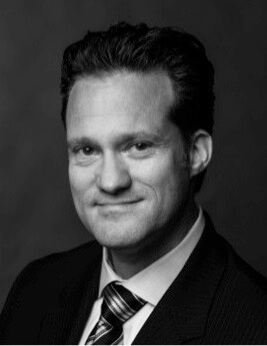New Year, New You: #2019HAIRTRANSPLANTGOALS
by Alan J Bauman MD ABHRS-Certified Hair Restoration Physician
Hairline receding? Seeing more scalp shining through? Lost your self-confidence when you look in the mirror? Looking for a way to feel and look more youthful and attractive?
If you answered ‘yes’ then you are likely one of the nearly 80 million Americans having to deal with aging hair and hair loss. As a progressive condition, hair loss can make us look and feel older and while hair loss is mainly genetic, there are a variety of lifestyle and environmental factors that determine how quickly our hair changes over time.
The good news is, today, advanced hair transplant procedures have made it possible for men and women to ‘turn back the clock’ on their aging, thinning hair – restoring their confidence and youthfulness.
“FUE” Hair Transplant Technology
Techniques for redistributing permanent, living and growing hair from the back of the scalp in to thinning or balding areas have been around for decades. However, hair restoration saw a game-changing revolution with the advent of the no-linear-scar Follicular Unit Extraction or “FUE” technique, but few could have predicted the impact the procedure would have on the industry. FUE is a less-invasive method of harvesting hair follicles and “follicular units” individually, virtually eliminating the antiquated linear or “strip-harvest” approach to transplantation. This meticulous process has been made more efficient through robotics, semi-automatic devices, virtually painless with sophisticated anesthetic techniques, and undetectable through careful attention to artistic detail.
The most advanced techniques that may be used for hair follicle harvesting and transplantation are:
- SmartGraft FUE: SmartGraft is an FDA-cleared mechanical, minimally-invasive surgical hair transplant instrument that works like an extension of the surgeon’s hand, allowing the removal of individual follicular units from the donor area located at the back of the patient’s scalp which are then implanted into the bald areas. This means no scalpels, sutures, or staples for the patient in the donor area–leaving absolutely NO linear scar. SmartGraft also has an on-board graft collection and storage system that preserves grafts within a carefully controlled environment for optimal hair growth rates and quality.
- ARTAS Robotic-Assisted FUE System: The FDA-cleared ARTAS robot is a state-of-the-art medical device that assists in hair transplant surgery by helping to safely and effectively extract intact hair follicles for transplantation using the FUE technique. The robot’s sophisticated micron-level precision allows patients to benefit from an unprecedented level of safety, accuracy, efficiency, and comfort during their hair transplant procedure. The system also features stereovision sensors to detect and analyze follicular units—calculating density, exit-angles, orientation, and location and proceed with precision robotic graft harvesting based on algorithms programmed by the surgeon.
- NeoGraft FUE: The original “game-changing” device for Follicular Unit Extraction is still in use today to help surgeons extract grafts from the Donor Area without leaving behind a tell-tale linear scar. Just be sure your surgeon is an experienced full-time hair restoration physician, not just someone who’s added NeoGraft to a full menu of cosmetic services.
Tips on Finding a Hair Restoration Physician
- A Hair Restoration Physician is someone who specializes exclusively in the medical diagnosis, treatment, and tracking of hair loss and its treatment.
- Look for full-time hair transplant surgeons who are certified by the American Board of Hair Restoration Surgery (ABHRS) and accepted by the International Alliance of Hair Restoration Surgeons (IAHRS).
- Due to the limited number of full-time, experienced ABHRS-certified hair restoration physicians worldwide, prospective patients should be prepared to travel and-or consult “virtually” via phone, Skype, Facetime, etc.
- Before choosing your doctor, visit the clinic, read reviews, ask for before-and-after pictures and most importantly, ask questions about how to achieve your desired results and what should be done to maintain them.
- Ask for a referral from your primary care doctor or dermatologist to a full-time Hair Restoration Physician who is fully equipped and trained to diagnose, treat and track your hair loss process and achieve your hair restoration goals.
Takeaways
One of the biggest problems with hair transplants today is that many unqualified, inexperienced, non-specialist doctors offer this procedure and/or perform procedures infrequently. The risks for hair transplant patients include increased discomfort, surgical complications, infections, scarring, poor density, and unnatural looking results. Another problem is that many doctors and large national clinics still mostly (or only) perform the “strip” or “linear” harvest technique instead of advanced, less invasive FUE procedures. When looking for a hair transplant specialist, make sure you consult with an experienced minimally-invasive hair restoration physician—someone who specializes exclusively in the medical diagnosis, treatment and tracking of hair loss and performs FUE hair transplantation on a daily basis.
The bottom line is, regardless of how the hair follicles are harvested, the critical step for naturalness is the artistry of the surgeon involved. Patients, therefore, should not choose their surgeon based on the tool they use, but more so on their artistic ability. To find a qualified hair restoration specialist, start by visiting and cross-referencing the American Board of Hair Restoration Surgery (ABHRS), International Alliance of Hair Restoration Surgeons (IAHRS) and the list of Fellows of the International Society of Hair Restoration Surgery (FISHRS). Do your research, ask questions, look at before-and-after pictures, and don’t be afraid to ask for patient testimonials.
If you or someone you know has hair loss, hair thinning, baldness, or eyebrow / eyelash concerns, click to start either a long-distance virtual consultation OR an in-person, in-office consultation with Dr. Bauman. You can also Ask Dr. Bauman a Question or simply call Bauman Medical Group at +1-
*Each individual's treatment and/or results may vary




 Falling Out of Love with Your Hair? Fall in Love Again with Bauman Medical’s Help
Falling Out of Love with Your Hair? Fall in Love Again with Bauman Medical’s Help Top 5 Non-Surgical Treatments
Top 5 Non-Surgical Treatments Dr. Alan Bauman named among The Best Hair Transplant Doctors In The World Today: 2023 Edition by ApeToGentlemen/Spex Hair
Dr. Alan Bauman named among The Best Hair Transplant Doctors In The World Today: 2023 Edition by ApeToGentlemen/Spex Hair A Quick And Handy Guide To Hair Loss In Teens
A Quick And Handy Guide To Hair Loss In Teens Dr. Alan J. Bauman, M.D.Hair Loss & Hair Transplant ExpertBoca Raton, FL
Dr. Alan J. Bauman, M.D.Hair Loss & Hair Transplant ExpertBoca Raton, FL






